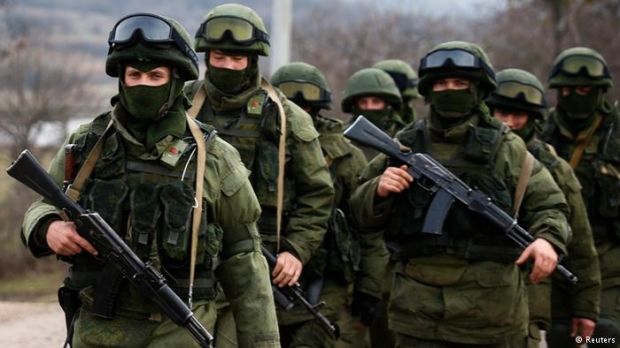
On March 1, 2014, the Russian Federation deployed troops and armored vehicles to the Crimean peninsula, a recognized territory of Ukraine, and occupied the region. The United Nations indicated that these actions were contrary to the UN Charter and called upon Russia to respect the “sovereignty and territorial integrity of Ukraine.” Some leaders condemned Russia’s actions, calling them an unlawful act of aggression and a violation of Article 2(4) of the UN Charter, reads the article.
In response, Russian President Vladimir Putin claimed the intervention, in large part, was to defend Russian-speaking minorities in the region from “real threats” to life and their health, to protect against anti-Semitic violence, and for a number of other humanitarian purposes. While President Putin’s claims continue to be debated, his response to critics is eerily similar to the arguments made by other world leaders for a humanitarian intervention to stop the Syrian Civil War.
The Syrian Civil War—characterized by chemical weapon use, mass displacements, and hundreds of thousands of deaths—is undoubtedly a humanitarian crisis. However, the United Nations has consistently been incapable of passing a resolution allowing for a military operation stopping the mass atrocities taking place in Syria. The guiding source for determining the legality of a nation’s use of force against another nation or within another nation’s territory is the UN Charter. Under the UN Charter there are only two legal bases for intervention in Syria—UN Security Council Resolution (UNSCR) under Article 42 or self-defense under Article 51. Without a UNSCR and no justifiable claim to self-defense, a plain reading of international law prohibits a state from intervening with military force in the Syrian conflict. Frustrated by the inaction of the United Nations, some have argued for an alternative international legal basis to justify a military intervention that is not found in the UN Charter. Relying on the controversial concept of “humanitarian intervention,” which allows one state to use military force to stop large scale atrocities in another state, interventionists believe the moral imperative to act makes consent of the Security Council unnecessary.
While the concept of humanitarian intervention offers a possible solution for the crisis in Syria, it also provides legal justification for Russia’s actions in Ukraine. It is not a coincidence that President Putin used the language of a humanitarian interventionist to rebut criticism of Russia’s involvement in Crimea. The ease with which the concept of humanitarian intervention can be used for subjective use of force determinations is extremely troubling and raises a difficult question. What poses a greater risk to international peace: a humanitarian crisis or a subjective legal basis that empowers nations to unilaterally initiate international armed conflict? For those concerned with both stopping humanitarian disasters as well as saving “succeeding generations from the scourge of war” finding an answer to this question will not be easy.

